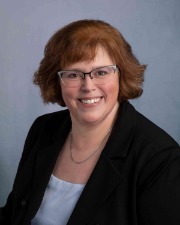Elder Financial Exploitation
Who’s the target?
Older adults who may need to rely on others to handle their finances.
What’s the scammer's goal?
To gain the trust of an elderly person in order to exploit them for money.
How do they do it?
In many cases of elder financial exploitation, the abused person is suffering from a mental impairment, such as dementia or Alzheimer's, making it easier for the abuser to gain control of the elder’s finances. The abuser can be a new friend, an adult child, a caregiver, or a financial authority like POA. The bad actors in these roles target the seniors in our community and take advantage of their kindness and generosity in a variety of ways. These scammers can take money without permission, overcharge for services, or fail to repay funds they borrowed, and the elderly person may not have the memory or faculty to notice. Because the elderly at the center of these scams are often unable to advocate for themselves, it is important for those surrounding the affected person to watch for the signs and report anything suspicious to the proper authorities. The victims of these scams are unlikely to report the abuse themselves for fear of losing their independence, especially if the abuser is their caregiver.
Red flags:
- The elderly person’s financial statement shows unusual activity such as new transfers, check payments, or wires
- The elderly person recently switched accounts, closed an account, or signed up for a new account
- The elderly person is getting calls and letters stating they have unpaid bills when they thought they were paid
How can we stay safe?
- Talk to your elderly friends and loved ones about the dangers of elder financial exploitation
- Encourage the seniors in your life to never sign anything they don’t understand
- Get to know the caregivers and friends of your elder loved ones
If you think an elder you know has been abused:
- Contact the local police
- Contact the National Elder Fraud hotline
- Contact the victim’s financial institutions
- Contact Adult Protective Services in your town or state
BHCCU Resources
 Angie Hoium
Angie Hoium
